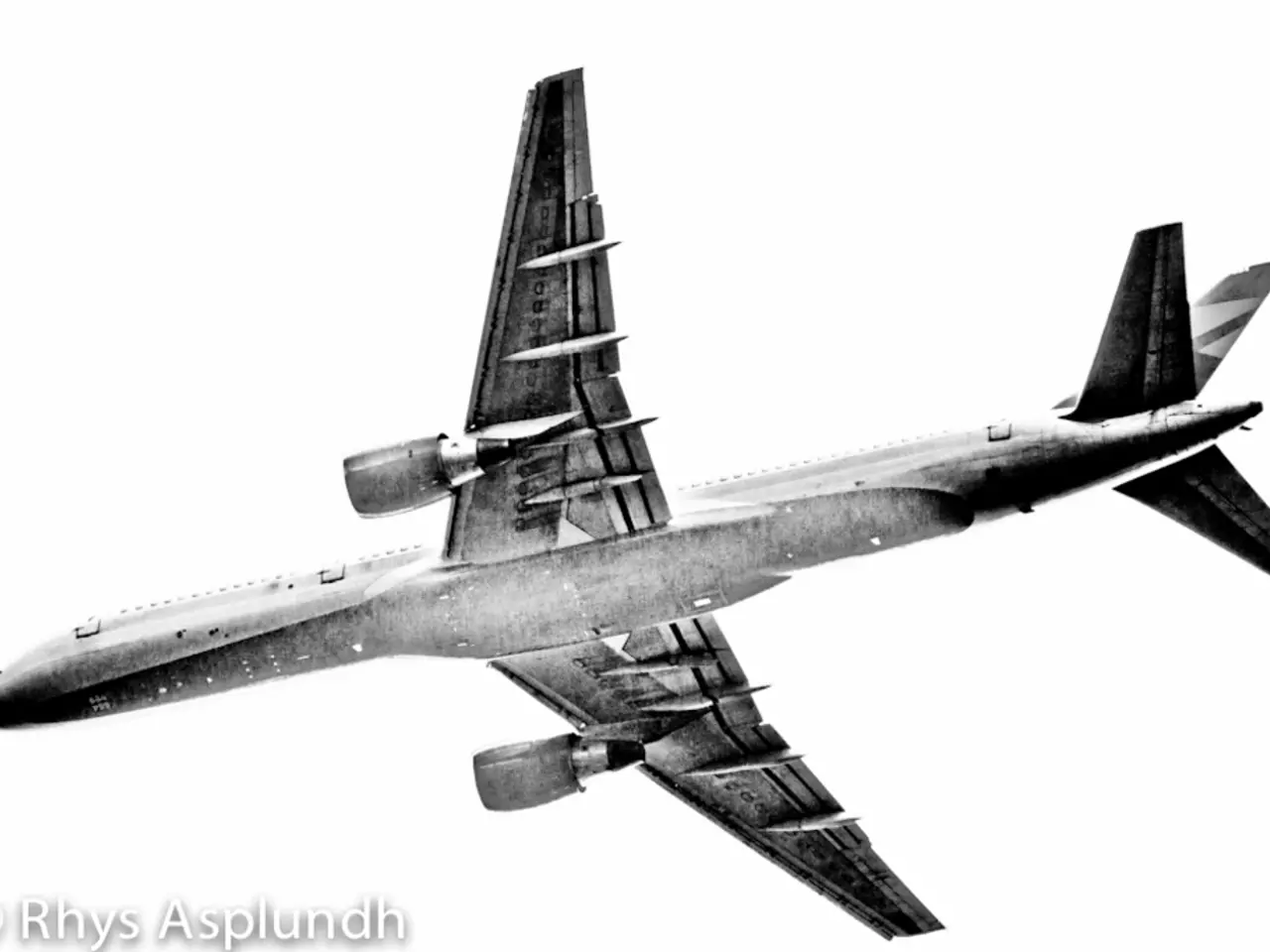Airline industry facing challenges due to escalating risks associated with ongoing conflicts
The ongoing conflict between Iran and Israel, along with associated regional tensions, has significantly disrupted airline routes and aviation safety across the Middle East. This conflict has led to the partial or full closure of airspace over key countries, imposing severe restrictions on commercial aviation and safety concerns for airlines operating in the region.
Key impacts include:
- **Airspace Closures and Restrictions:** In June 2025, as the Iran-Israel war escalated, entire airspace zones—such as Qatar’s airspace—were closed due to missile attacks targeting US military facilities, prompting "NO DEPARTURES AND ARRIVALS DUE AIRSPACE RESTRICTION UNTIL FURTHER ADVISE" notices to airlines. Iran and Iraqi airspace remain closed, with Jordan, Lebanon, and Syria also seeing very limited air traffic due to security concerns.
- **Flight Disruptions and Diversions:** Flights have faced extreme delays and rerouting. For example, Qantas flight QF33 was forced into a 15-hour flight with no landing due to regional airspace congestion and closures, eventually returning to its origin. Airlines like Air India have suspended operations to and from the Middle East and routes to and from North America and Europe until further updates.
- **Safety Advisories and Restrictions by Aviation Authorities:** The European Union Aviation Safety Agency (EASA) has issued continuous safety information bulletins (CZIB), advising airlines to avoid or exercise caution over the airspace of Iran, Iraq, Israel, Jordan, and Lebanon due to the conflict and military activity. These advisories remain active, reflecting high risks such as missile attacks and military interceptions.
- **Gradual Resumption Post-Ceasefire but Continued Caution:** Following a ceasefire agreed on June 24, 2025, some airspace restrictions are being cautiously lifted. However, local security measures and travel advisories remain in force, and disruptions to flights and airport operations persist as the region works through residual effects and congestion.
- **Broader Regional Aviation Impact:** The conflict has economic repercussions for the Middle East and the wider MENA region’s aviation sector, disrupting traffic flows and causing airlines to reroute, suspend, or delay flights, impacting global connections.
In addition, the practice of GPS spoofing is on the rise, with a study by the OPS Group reporting a 500% increase in GPS spoofing between 2023 and 2024. This, coupled with interference with airplane navigation systems, such as GPS jamming, is a concern in areas bordering conflict zones.
Western airlines are not barred from Pakistani airspace, but most currently choose to avoid it. European airlines have had three years to adjust to the Russian airspace ban and have largely coped, while the Pakistan-India airspace closure is a particular problem for Air India as it means the company’s planes must now make a stop during trips to the United States.
The International Air Transport Association (IATA) recognises the concern that global conflict is impacting aviation safety. Nick Careen, senior vice president for operations, safety, and security at the International Air Transport Association (IATA), wrote an article titled "Operating Safely in a More Conflict-Ridden World." The article emphasises the need for airlines to adapt to the changing landscape, implement robust systems to guard against GPS spoofing and other navigation risks, and maintain open lines of communication with aviation authorities to ensure the safety of passengers and crew.
Repeated airspace closures can be quite expensive due to longer flights and the risk of cancelled flights. Short haul flights are often worst affected by airspace closures, as they tend to be longer due to rerouting. Despite these challenges, the aviation industry continues to adapt and find solutions to maintain safe and efficient operations in a volatile and ever-changing world.
[1] European Union Aviation Safety Agency (EASA), "Safety Information Bulletin - Middle East," accessed November 2025,
- The European Union Aviation Safety Agency (EASA) has issued safety advisories for airlines to avoid or exercise caution over the airspace of countries like Iran, Iraq, Israel, Jordan, and Lebanon due to the ongoing conflict and military activity in the Middle East.
- The International Air Transport Association (IATA) recognizes the impact of global conflicts on aviation safety, and has emphasized the need for airlines to adapt to the changing landscape, implement robust systems against GPS spoofing and other navigation risks, and maintain open lines of communication with aviation authorities.
- As the conflict in the Middle East continues, the aviation sector in Asia, specifically in countries like Pakistan, may face increased concerns related to GPS spoofing and navigation system interference, given their proximity to conflict zones.
- With restrictions still in place and local security measures ongoing, sports events in Europe might face challenges in terms of scheduling and athlete availability, as travel to and from affected regions remains difficult.







